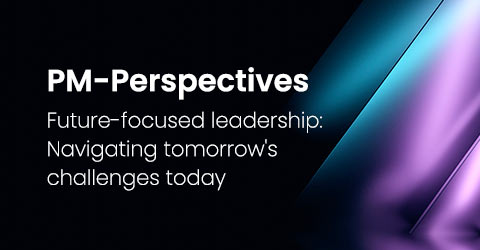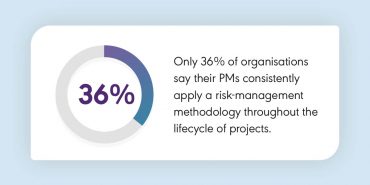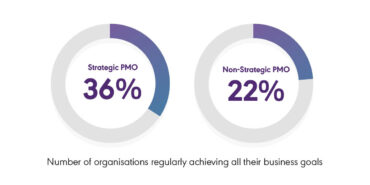4 steps to PMO success

Six in 10 organisations now use a centralised project management office to co-ordinate their projects, and with the increasing influence of the PMO on the organisation, it is essential that it’s set up for success. Here are four essential steps to achieving PMO success.
1. Define the PMO’s role
A PMO with a well-defined, visible role in the organisation’s projects is more likely to succeed than one without a set purpose.
Traditional PMOs perform a strong governance role with a focus on compliance and project status reporting and hold the administrative power to allocate or withdraw resources, initiate or cut projects dependent on business case. However, more recently the PMO’s role has changed and it’s clear that the command-and-control style of PMO is giving way to a more supportive function.
Supportive PMOs are project enablers. They are closely aligned with the organisation’s strategic function and use their oversight of its projects and resources to take a portfolio-level view. Their role is to keep abreast of shifts in the business environment, to equip the right projects with the right resources at the right time to achieve strategic outcomes for the organisation. Many hold a centre of excellence position within their organisation and perform services such as tracking and manage both organisational knowledge and project benefits.
Defining the PMO’s role sets expectations within the organisation. It ensures team members have a clear understanding of their relationship to the office and are best prepared for how projects will be delivered moving forward.
2. Secure stakeholder engagement
As with any change program, initiation of a PMO within an organisation requires stakeholder engagement, buy-in and management. This ensures everyone from project practitioners and sponsors up to executives in the organisation understand – and are on board with – the PMO’s goals. Seven in 10 PMOs nominate sponsor engagement as a contributing factor to project success, with 62 per cent indicating customer engagement and 48 per cent indicating other stakeholder engagement.
The key skill here is clear communication, both in providing information to, and gathering feedback from, all stakeholders. This process begins before the PMO comes into effect to prime direct stakeholders for the changes to be expected and to secure their support. From there, it is essential to build rapport and trust for the best chance of success. Credibility and acceptance underpin a strong relationship between the PMO and the rest of the organisation.
3. Demonstrate value
Once the PMO has been established, it’s crucial to demonstrate value. Outputs, outcomes and benefits will depend on the PMO’s remit, which derives from its primary role set out at the beginning. If the PMO is in charge of governance and compliance, for example, it should provide evidence that projects prior to its inception were less disciplined or less compliant in comparison to after the office was established.
Other ways a PMO may demonstrate value is through its support of projects in the organisation’s portfolio and the resulting increase to the successful project delivery rate. As part of performance tracking and benefits realisation, the PMO should have metrics that provide evidence for its contributions.
Value may also be tracked at a practitioner level. Project practitioners may vouch for the PMO’s role in providing skills, knowledge and resources that have helped them improve delivery of their project.
In short, the benefits of establishing the PMO must clearly outweigh the costs in time and resources to the organisation to show value. In some quarters there’s a long-held perception that the ‘O’ in PMO stands for ‘overhead’, so be ready to prove otherwise.
4. Lead change
Finally, the PMO should be the key influencer to direct change within the organisation. More organisations are creating centralised PMOs to perform a strategic function and view them as the leader of organisational change.
Part of the change function involves an intimate understanding of the organisation’s goals and direction and the ability to pivot and resource solutions to excel in a changing environment. This requires the PMO to have a close working relationship with the executive function of the organisation, while maintaining the buy-in of the practitioners who will be executing the changes.
The result? Better agility; improved, informed decision-making; and faster resource deployment alongside providing the requisite skills to team members to succeed at change. It’s no surprise that many PMOs employ lean and agile methodologies to support this function.
There is evidence to suggest PMOs are growing into this role: recent AIPM research reveals 37 per cent of organisations rate their centralised PMO’s ability to support and effect change as ‘very’ or ‘extremely’ effective, up from 28 per cent two years prior.
PMOs have a key role to play in the ongoing success of an organisation, both strategically and at a project level. Therefore, setting up a PMO for success gives the organisation the best chance to thrive.
Find out more about how to run a successful PMO, including the benefits of establishing an Agile PMO, by contacting the experts at PM-Partners or call us on 1300 70 13 14 today. And don’t miss our free Set up for success PMO checklist with all the key considerations and questions to ask when building your PMO.

About The Author
Daniel Naidoo
Senior Consultant
Daniel has a track record of delivering results for organisations tackling complex change, with experience across a variety of sectors, predominantly within technology. He brings a customer-centric approach to understanding each client’s requirements, while uncovering next steps and solutions in their transformation journey, from the implementation of Agile, or other frameworks, to organisational growth and capability uplift.
Daniel also works hand-in-hand with the business to support successful project execution. This includes setting up a project management office (PMO) or enhancing an existing PMO, and ensuring its effectiveness via appropriate PMO governance, assurance and/or training, with the ultimate aim of delivering projects on time and on budget. He is skilled in stakeholder engagement and strategy alignment and utilises his knowledge and experience to drive client success.







